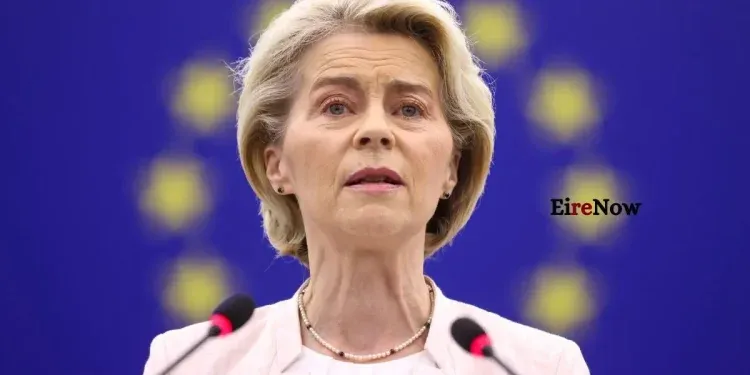BRUSSELS – The European Commission has proposed a comprehensive package of measures to curb trade and impose sanctions on Israel, marking the EU’s firmest and most significant attempt to pressure the country over its ongoing military actions in Gaza and the deteriorating humanitarian crisis. The move, announced by EU officials in Brussels, seeks to partially suspend the EU-Israel Association Agreement, which grants Israeli goods preferential access to the European market.
This proposal follows a public call from European Commission President Ursula von der Leyen last week, in what was seen as a major shift from her previously staunchly pro-Israel stance. The proposals are a direct response to a review of Israel’s compliance with Article 2 of the Association Agreement, which mandates respect for human rights and democratic principles. The Commission concluded that Israel’s actions, including the humanitarian blockade on Gaza and the expansion of West Bank settlements, constitute a breach of this fundamental clause.
The proposed measures include:
- Suspension of Trade Preferences: This is the core of the proposal. It would mean that approximately 37% of Israel’s exports to the EU, valued at around €5.8 billion annually, would lose their zero-tariff status. These goods would instead be subject to duties under World Trade Organization rules, potentially costing Israeli exporters an estimated €227 million per year. While this does not halt trade entirely, it aims to impose a significant economic cost.
- Sanctions on Individuals: The Commission has proposed sanctions, including asset freezes and travel bans, on two senior Israeli ministers—National Security Minister Itamar Ben-Gvir and Finance Minister Bezalel Smotrich—as well as on “violent” Israeli settlers in the West Bank.
- Suspension of Bilateral Support: The EU executive has also decided to immediately freeze roughly €20 million in bilateral support for Israel, with the exception of funding for civil society groups and the Yad Vashem Holocaust memorial center.
Divisions and Uncertainty Remain
Despite the Commission’s strong stance, the proposals face significant hurdles. They require a “qualified majority” of EU member states to pass, meaning at least 15 of the 27 countries, representing 65% of the bloc’s population, must vote in favor.
The EU remains deeply divided on the issue. Countries such as Spain and Ireland have been vocal proponents of stronger action against Israel, while others, most notably Germany, Italy, and Hungary, have consistently opposed such measures. EU foreign policy chief Kaja Kallas acknowledged this division, urging member states to either support the current plan or “bring alternatives” if they believe the situation on the ground is “untenable.”
Israel’s Reaction
Israel has vehemently condemned the EU’s proposals. Israeli Foreign Minister Gideon Saar described the sanctions as “morally and politically distorted” and warned that they would be met with an appropriate response. He has appealed directly to European Commission President von der Leyen to withdraw the proposal, arguing that “pressure through sanctions will not work” and would only “empower Hamas.”
While the immediate impact of the proposals is uncertain, their very existence represents a major shift in EU-Israel relations. This is the first time the EU has moved to use its economic leverage on a broad scale to pressure Israel, signaling a growing frustration among European leaders and a reflection of shifting public opinion across the continent.







